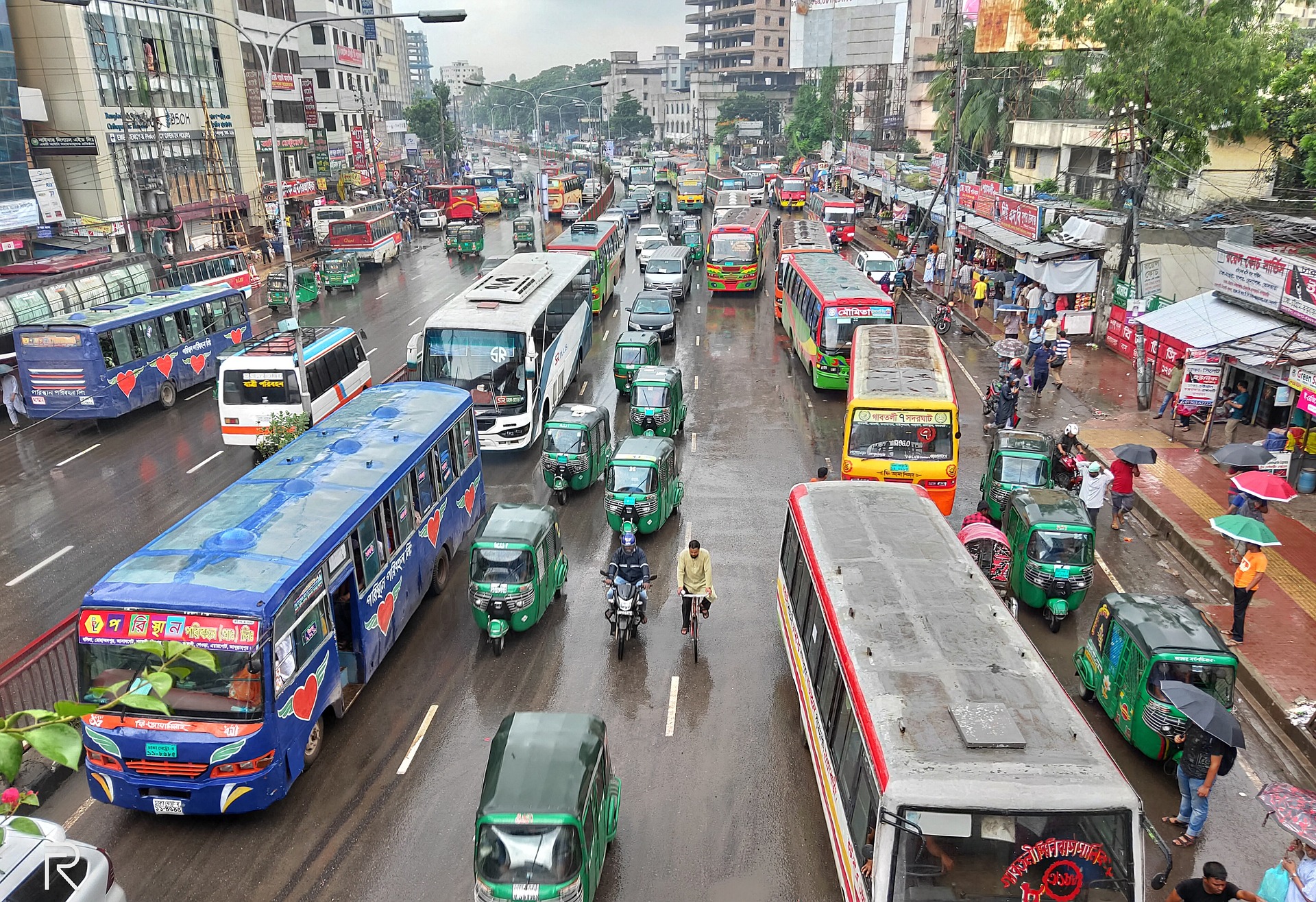Social situation Growth not reaching everyone
Poverty
Between 2000 and 2016, the proportion of people living below the national poverty line was halved, from 48.9 per cent to 24.3 per cent (2016). These figures then fell even further; in 2019, some 20.5 per cent of the population were living below the poverty line. Despite this success, poverty reduction remains one of the Bangladesh government's primary tasks. On the current Human Development Index (HDI), Bangladesh ranks 129th out of 193 countries. Bangladesh has managed to very quickly recover from the setback caused by the COVID-19 pandemic.
Basic services
There are still considerable gaps in the provision of basic services for the people of Bangladesh. For example, only 59 per cent of the population have access to safe drinking water supplies. Only some 75 per cent of pregnant women receive medical care, and only about 60 per cent of all babies are delivered by medically trained personnel. About a quarter of adults are unable to read or write, and about 25 per cent of the population use the internet.
Situation of women
Women in Bangladesh still face many instances of discrimination. There are very few women in politics or business, in particular in rural areas. Domestic violence against women is widespread, and the country's legislation on inheritance, marriage, separation and divorce places women at a legal disadvantage. Moreover, Bangladesh is one of the countries with the highest incidence of child marriages. Two out of three girls are under the age of 18 when they get married. This tendency has worsened in 2020/21 because of lockdowns and school closures during the COVID-19 pandemic.
Ambitious development goals
The Bangladesh government has achieved its goal from the country’s Vision 2021 strategy paper: In 2021, in the country’s 50th year of independence and following the third successful round of review by the United Nations, the graduation of Bangladesh from the group of least developed countries (LDCs) was confirmed. Following a transition phase, the country will leave the group in 2026.
Since 2015, the World Bank has classified Bangladesh as a lower-middle-income country. The eighth five-year plan (2020 to 2025) and the Delta Plan envision the country achieving high-middle-income status by 2031.
If this goal is to be achieved, a great many fundamental development constraints will still have to be overcome, however. The 2023 to 2050 National Adaptation Plan (External link) (NAP), which was adopted in October 2022, has also enshrined ambitious goals in climate action, which are unlikely to be achieved successfully without international support.
As at: 14/02/2023
